The Best 10 Things to Do in Phnom Penh
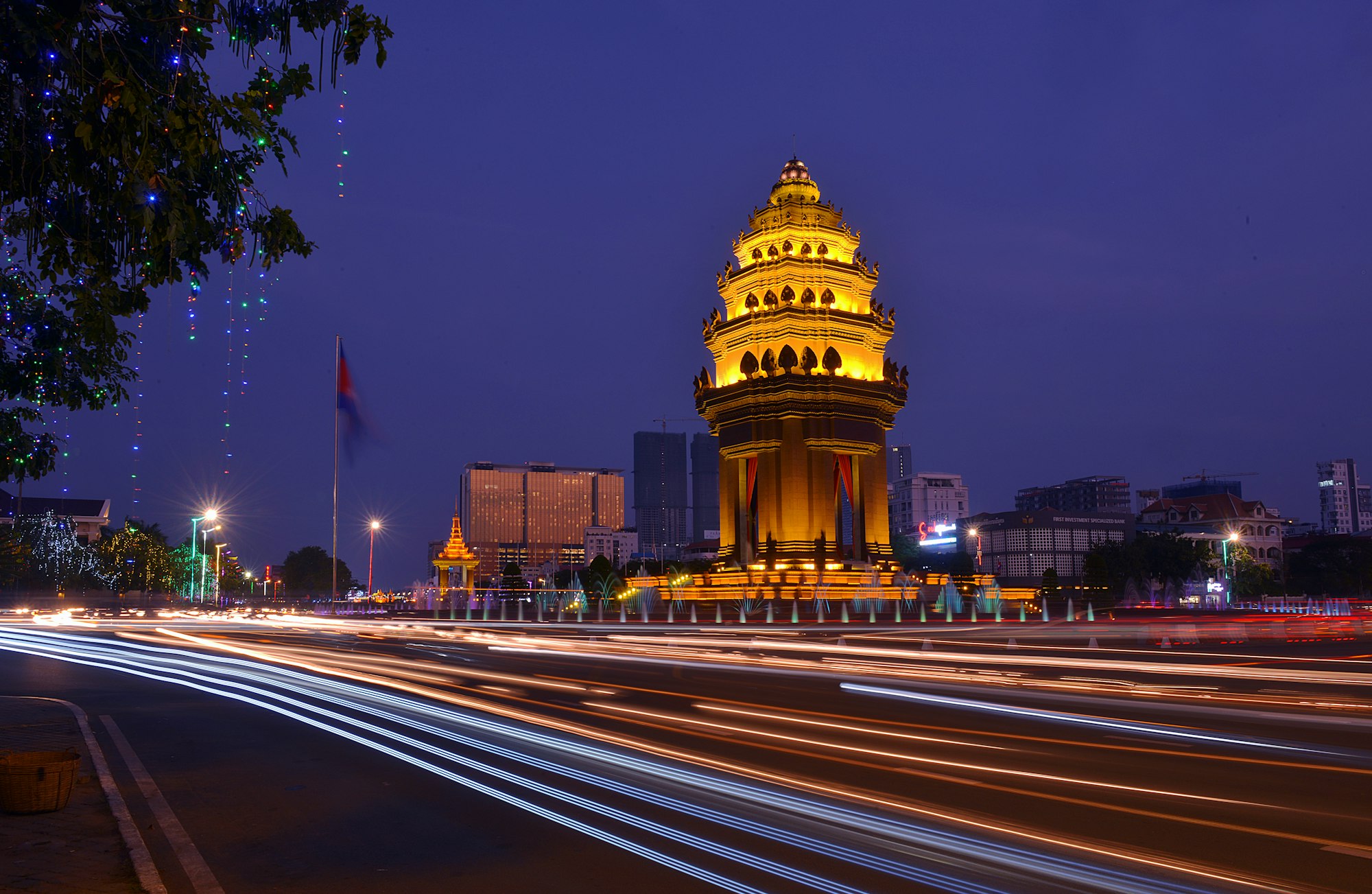
Phnom Penh, the glorious capital of Cambodia is a wonderful city to explore. Despite its gory past, it’s fun, welcoming and very affordable.
This post has a mix of historic, fun, delicious and heartbreaking things to do in Phnom Penh. But that’s the only way to experience Cambodia’s capital city.
You have to see it all, the good and the ugly in order to understand the past and appreciate the present day in this busy city.
Bookings: Some of the links in this article are affiliate links. This means that if you choose to make a booking, we will receive a small commission at no extra cost to you. Thank You!
How many days do you need in Phnom Penh?
It really depends on your budget and how much time you have. But if you can, spend at least 3 days in the city. From the gold-dusted Royal Palace and tasty food scene to the tragic Killing Fields, there are so many things to see in Phnom Penh.
We’ve been to Phnom Penh twice and loved spending time here on both occasions. It’s such a friendly and laid-back city, one of our favourites in Cambodia.
Top 10 things to do in Phnom Penh
The capital of Cambodia is chilled and welcoming. It offers a tremendous amount of historical and cultural sights, restaurants, rooftop bars, spas and other simple joys which we’ve listed below.
But out of the top ten things to do in Phnom Penh, the Genocide Museum and the Killing Fields are the two most important sites to visit in the city.
Visit at least one of them to understand what happened during the dark years of the Khmer Rouge regime. It’s a harsh reality but one everyone needs to see and hear.
Tuol Sleng Genocide Museum
The capital of Cambodia was a prosperous city, with the modern Royal Palace structure, fine colonial buildings and the grand Art Deco 'Central Market' built by the 1930s.
After independence from France in 1954, the city flourished with the state-of-the-art 'New Khmer Architecture' and embraced further development until horrific events started to take place in 1975.
During the Khmer Rouge era, the city was evacuated and the whole country was isolated from the outside world for over 3 years. During this time, millions of Cambodians were brutally tortured and later killed. The country and its economy have suffered for many years afterwards.
Tuol Sleng Genocide Museum is housed in the former secondary school known as S-21, Security Prison 21. This is just one of the 190 torture centres that were established by the regime across the country.
Here was where thousands of Cambodians, mainly soldiers, government officials, doctors, students and teachers, were imprisoned and tortured.
In the museum, you’ll see photographs of the prisoners as well as the torture instruments. Pictures of the Vietnamese photographer Ho Van Tay are also exhibited at the museum.
Ho Van Tay was the first one to discover and document Tuol Sleng after it was uncovered by the Vietnamese army in 1979.
The Killing Fields

The surviving Tuol Sleng prisoners, who confessed to crimes they didn’t commit as a result of excruciating torture, were then taken to the Killing Fields. Here they were brutally killed and buried in mass graves.
Visiting the Killing Fields is a heartbreaking experience but an absolute must-do in Phnom Penh. Be sure to pick up the excellent audio guide provided.
During the visit, the audio guide explains the not-so-distant, hard-to-imagine horrific events that took place on-site during 1975-1979. As you follow the trail, one story after another unfolds the horrid past of the now peaceful site.
As you walk through the field, look out for human bones sticking out of the soil. Human remains and pieces of clothing are still being dug out of the ground as the soil is still pushing the remains up during the rainy season.
It's a shocking sight and feels as if tortured ghosts from the past are still crying out in fear and pain.
How much does it cost to go to Killing Fields?
Admission to the Killing Fields site is $6 per person including the audio guide. You can buy your ticket at the entrance to the site. Admission to the Tuol Sleng Genocide Museum is $8.
Is there a dress code for the Killing Fields?
There is no dress code as such for visiting the Killing Fields but you have to remember that it’s a sacred place to many Cambodians. Dress respectfully and try to cover your shoulders and knees.
How far is the Killing Fields from Phnom Penh?
The Killings Fields site is around 15 km south of Phnom Penh. It takes around 40 minutes to get there.
You can hire a motorbike and get there yourself. Or you can hire a local tuk-tuk to take you there and back to the city for around $15-$20. The driver will wait for you while you explore the site.
The Royal Palace

The residence of the King of Cambodia, surrounded by tall walls and adorned with beautiful gardens, sits right opposite the riverfront.
Notable for the beautiful 'Silver Pagoda,' the Royal Palace is, no doubt, one of the top attractions in Phnom Penh. The monument is home to the Emerald Buddha as well as the 90 kg golden Buddha Maitreya, encrusted with over 2,000 diamonds.
Perhaps slightly less elaborate than the Grand Palace in Bangkok, the Royal Palace is nonetheless an impressive complex. You’ll get to explore the stunning Throne Hall, and Chan Chhaya Pavilion and wander around the Silver Pagoda.
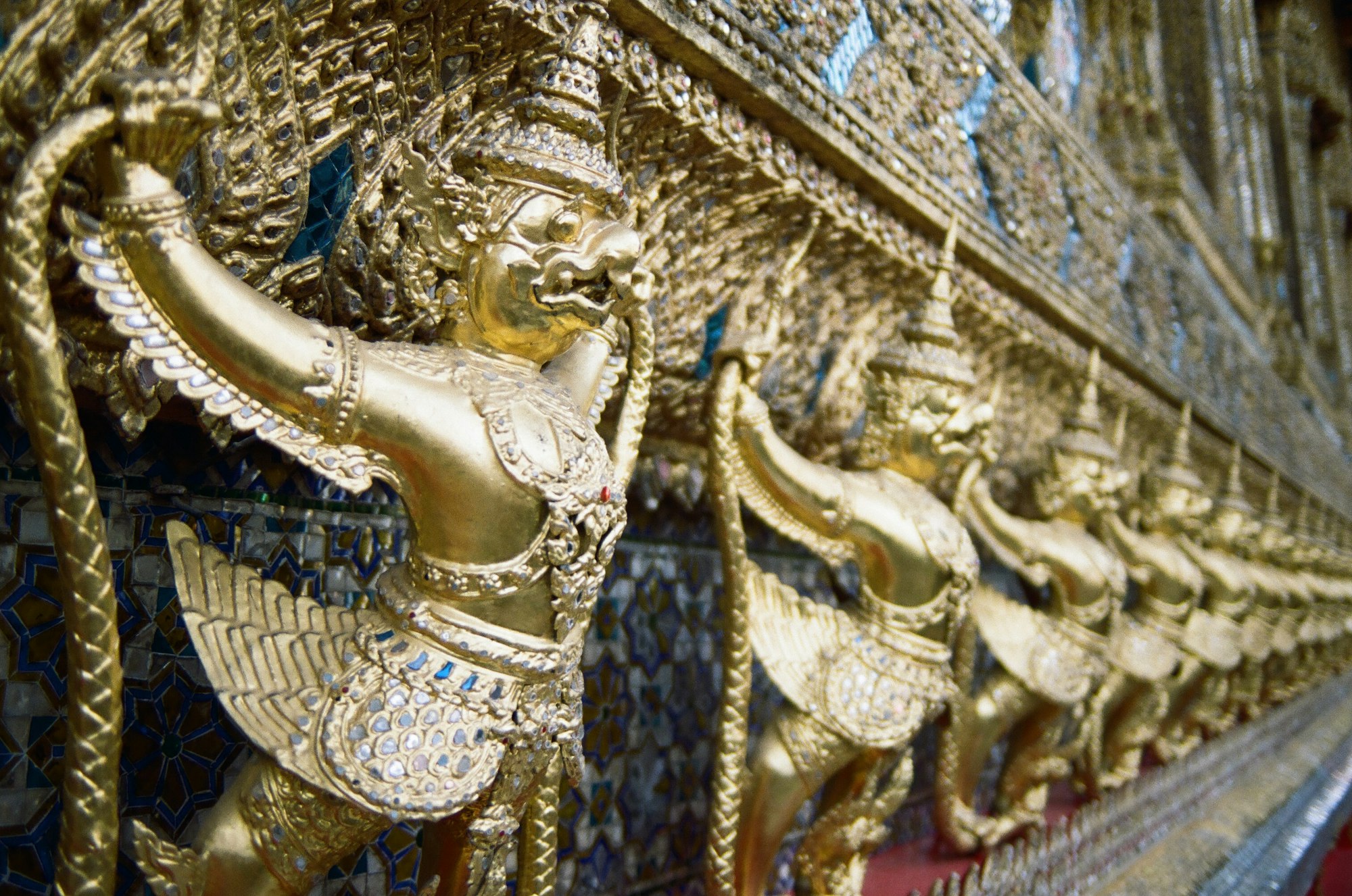
What do you wear to the Royal Palace in Phnom Penh?
As in many SE Asian countries, wearing a modest outfit to the King’s palace is a smart choice. Be sure to cover your knees and shoulders.
How much does it cost to visit the Royal Palace?
It costs $10 per person to visit the Throne Hall and Chan Chhaya Pavilion and walk around the stunning Silver Pagoda.
The National Museum
Located right in the centre, the National Museum is one of the most fascinating things to see in Phnom Penh. The site is a must-see not only for its fabulous content but also for its remarkable exterior.
It houses thousands of artefacts and costs $5 to enter. If you can, visit the Angkor Architectural Park in Siem Reap first to understand the large collection of Angkorian artefacts displayed in the museum.
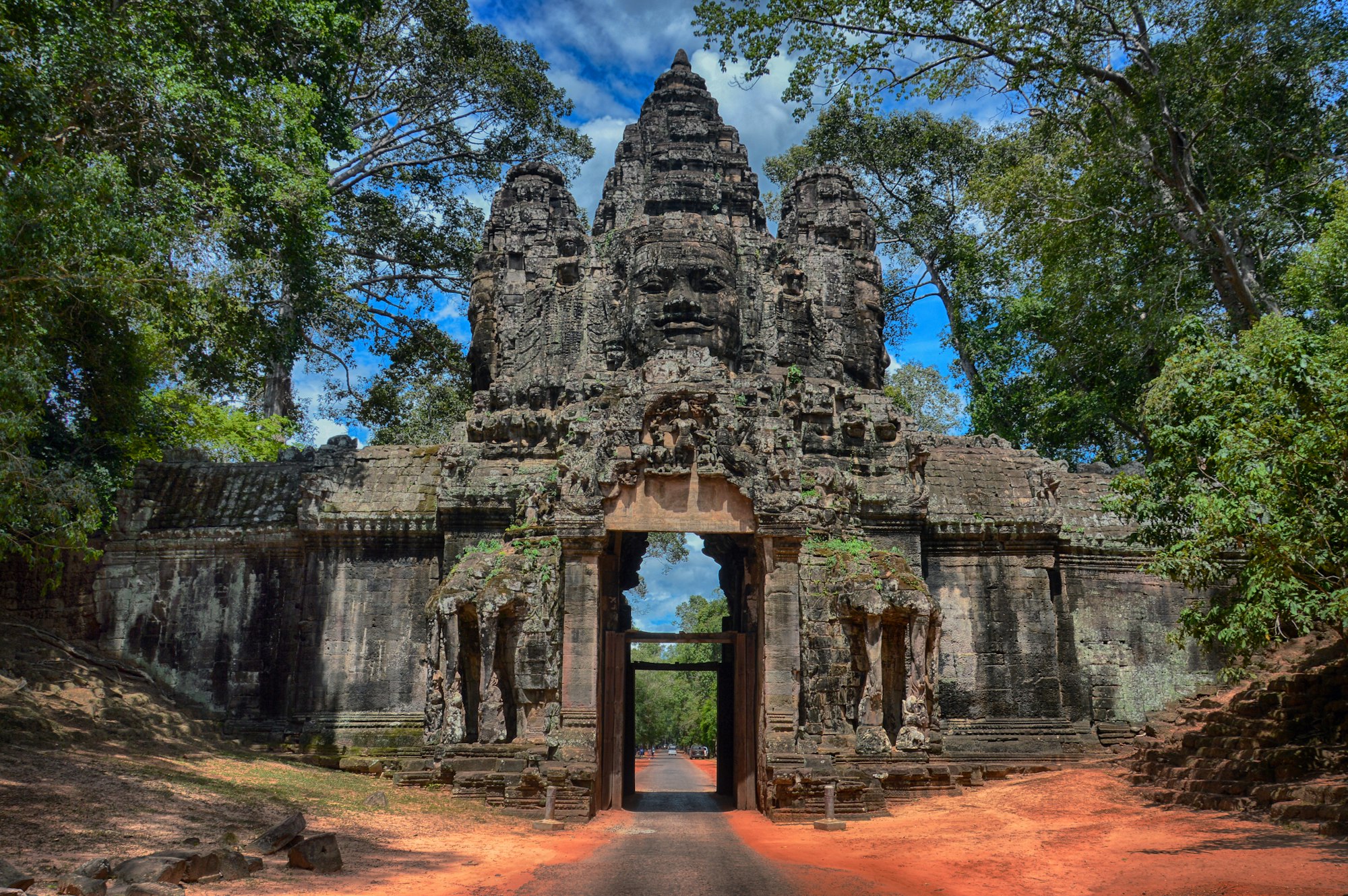
The Independence Monument

If you are looking for things to do in Phnom Penh at night, then head to the Independence Museum. There is no admission to this rather impressive masterpiece by the Cambodian architect Vann Molyvann.
The monument sits right in the middle of the intersection of Norodom and Sihanouk Boulevards and looks especially stunning when lit up at night.
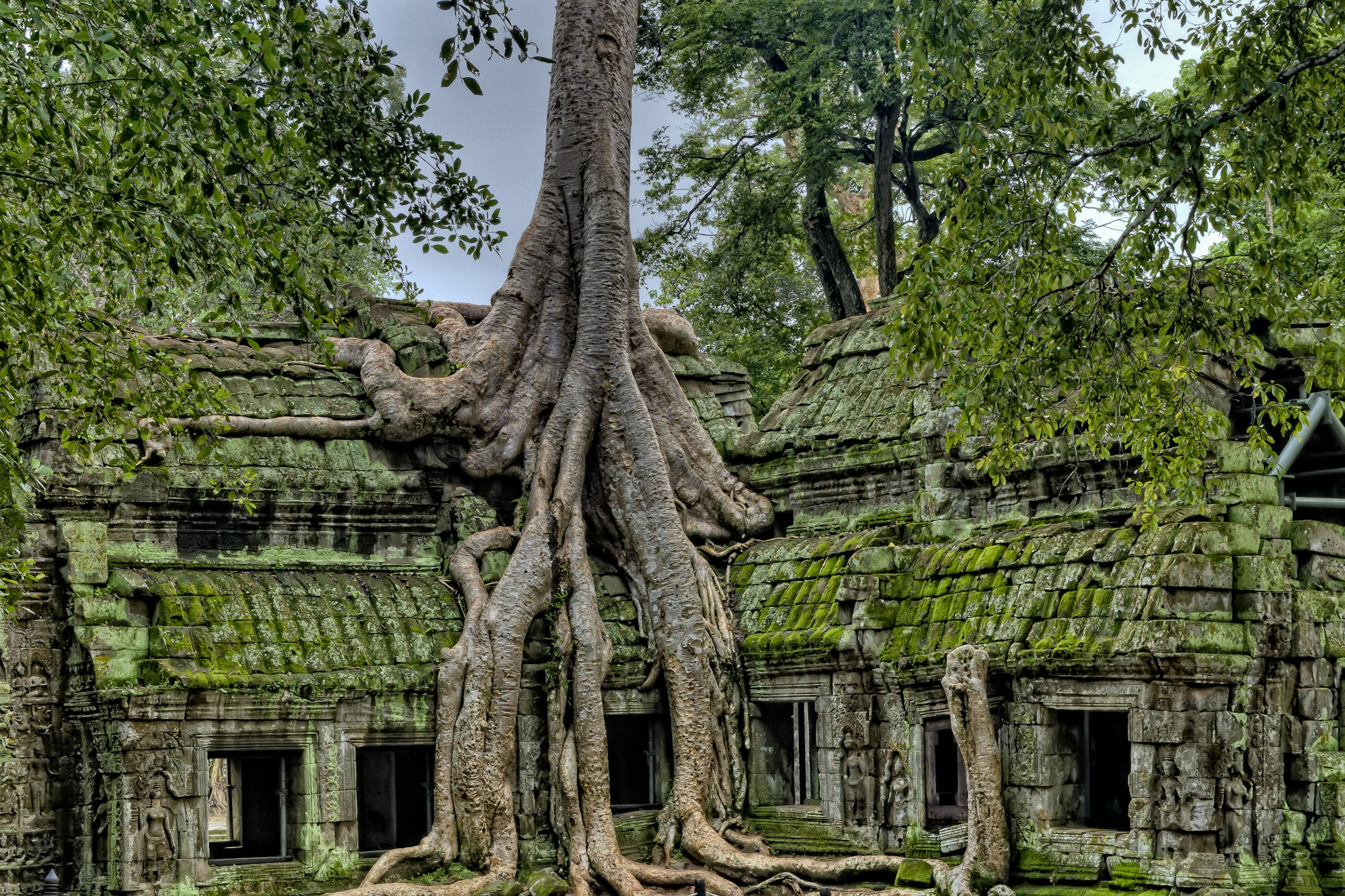
Wat Phnom
Exploring the legendary hilltop Wat Phnom is another must-do in Phnom Penh. Standing 27 meters above the ground, it’s the tallest pagoda in the city.
It's from this temple that the city gets its name. In the Khmer language, Phnom means Hill, so the city name translates to 'The Hill of the Lady Penh'.
Dress modestly when visiting. The temple, surrounded by greenery, is popular amongst the devotees, who trek to the pagoda and shrines atop the hill.
The Central Market

For some good shopping in Phnom Penh, visit at least one phsar (market) in the capital city. The two most famous markets among visitors are the Russian Market and the Central Market.
Both sell an abundance of things from fake designer watches and clothes to genie lamps and other fascinating things.
If you only have time for one market, we recommend popping into the Phsar Thmey (Central Market). The shopping here is great as well as the building itself.
As you shop, also pay attention to the magnificent dome and symmetrical constructions adorning the interior of this fascinating Art Deco piece of architecture.
This market will be of interest to you if you are on the lookout for precious gems. Be extra careful though, fake stones happen to circulate in this particular spot.
Walk along the Promenade
One of the best things to do in Phnom Penh when visiting the city is mixing with the locals. And the Riverfront is definitely the best place for it.
While it might be too hot to sit by the Promenade in the daytime, it comes to life later in the cool of the evening. The local families bring picnics, vendors sell ice-cold beer and snacks. The vibe is great.
It’s the perfect spot to cool down after a hot day’s explorations and spend a chilled evening in Phnom Penh.
'Seeing Hands' massage
When travelling, it always feels good to be able to contribute to the local community. If you are in Phnom Penh for a couple of days, try something different. Book yourself for a 'Seeing Hands' massage.
Massage rooms run by professionally trained blind and partially sighted misuses can be found across the capital. For a very affordable amount, you can get a dry (no oil) back & shoulder massage and help them live a more self-sustainable life.
Watch the traditional dance show
A great way to spend an evening in Phnom Penh and once again support the local community is to experience Cambodian Living Arts.
The spectacular show features a variety of Khmer folk and classical dances performed by talented Cambodian artists.
It takes place in the stunning back garden of the National Museum at 7 pm, Monday to Saturday.
Fun things to do in Phnom Penh and beyond
If you are looking for fun things to do near Phnom Penh, a cycling tour could be an option. Another great activity in the city could see you learning some basic Cambodian dance moves.
Cycle along the Mekong River
Biking through the countryside is one of the things we loved the most during our SE Asia trip. In Phnom Penh, you can either rent your own bike or join a well-organised bike tour and have a cracking morning cycling along the Mekong River.
Cambodian dance workshop
Or you could learn some traditional Cambodian dance moves from the local dance artists at a Dance Workshop. The workshops take place in the open-air theatre of the National Museum.
Eating in Phnom Penh

One thing we didn’t include in the top 10 things to do in Phnom Penh is Cambodian food. And that’s because it deserves its own mention. Especially the popular Khmer BBQ.
Local street food
Sampling street food is definitely one of the best ways to get to know the local cuisine. There are a few food stalls along Preah Ang Eng Street. Try the traditional Lok Lak, it's very tasty. Markets can also be good for sampling some local cuisine. Try the Russian and Central markets.
The famous Khmer BBQ is served in many places as it is a local speciality. Spiced with the famous Kampot pepper, it’s the most beloved dish in the city.
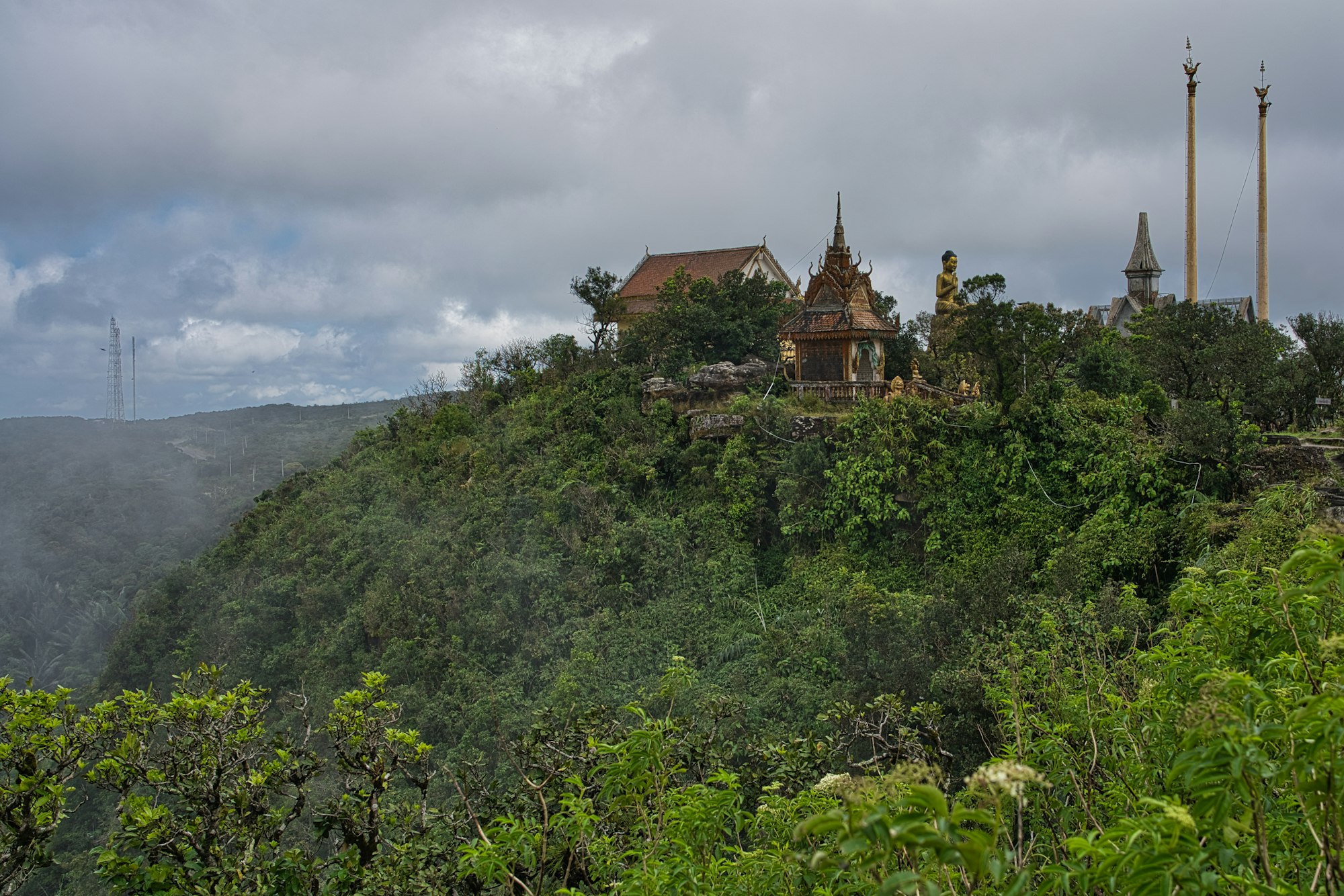
If you don’t know where to start or are unsure what to try, you can join a food tour in Phnom Penh. Many include an English-speaking guide, a tuk-tuk and plenty of opportunities to try Khmer food in Phnom Penh.
Western food
If you are searching for Western food in Phnom Penh, you’ll find it in the backpacker area along Jayavarman and a couple of streets near it. Also, cafes and restaurants serving all sorts of cuisines run along the riverfront.
We totally get you if you are looking for comfort food. We’ve been there too. While Asian food is delicious, after travelling for months around SE Asia, we craved pizzas and anything non-noodle-based.

Sugar cane juice
One more thing to do in Phnom Penh and other parts of Cambodia is to try freshly squeezed sugar cane juice. It's seriously good, refreshing, cheap and available everywhere.
Getting around Phnom Penh

The traffic in Cambodia, although chaotic, is not quite as mad as it is in Vietnam, which makes the city fairly easy to get around. Tuk Tuk and taxis (often unmetered) are readily available, but be ready to smile and haggle.

Renting a motorbike can be a good option as the traffic here is still relatively light. Older bikes will set you back around $15 and newish - $20. For a cheaper option, rent a less powerful moped, great for whizzing around the city.
A hop-on-hop-off bus is also an option. To book this touristy bus, check with your hotel.
Getting to Phnom Penh
By air. Phnom Penh International Airport is located 7km west of the capital and is the largest airport in the country.
It's easy to get to the Cambodian capital via air from the major Asian cities i.e., Bangkok, Kuala Lumpur, HCMC (Saigon), Singapore, Taipei, Hong Kong and Shanghai.
By bus. The most convenient way to get to Phnom Penh from Vietnam is to take a bus from Saigon via Bavet (Cambodia)/Moc Bai (Vietnam) crossing. The roads between the checkpoints are good, visas are available on arrival.
We booked a bus via the Mekong Express bus operator in Saigon and the 6-hour journey was relatively easy and comfortable. The road between the borders is in good condition throughout and the new bridge over the Mekong River is now completed.
Our Cambodian visas were sorted for us on arrival by the bus company. It did cost us an extra $5 each, but rumour has it that occasionally you get charged an extra few dollars anyway at the border, so no hard feelings here.
If you are travelling to Phnom Penh from Thailand, the most convenient crossing is the Aranyaprathet (Thailand)/Poipet (Cambodia). Make sure you read the visa regulations as they may change during your travels.


